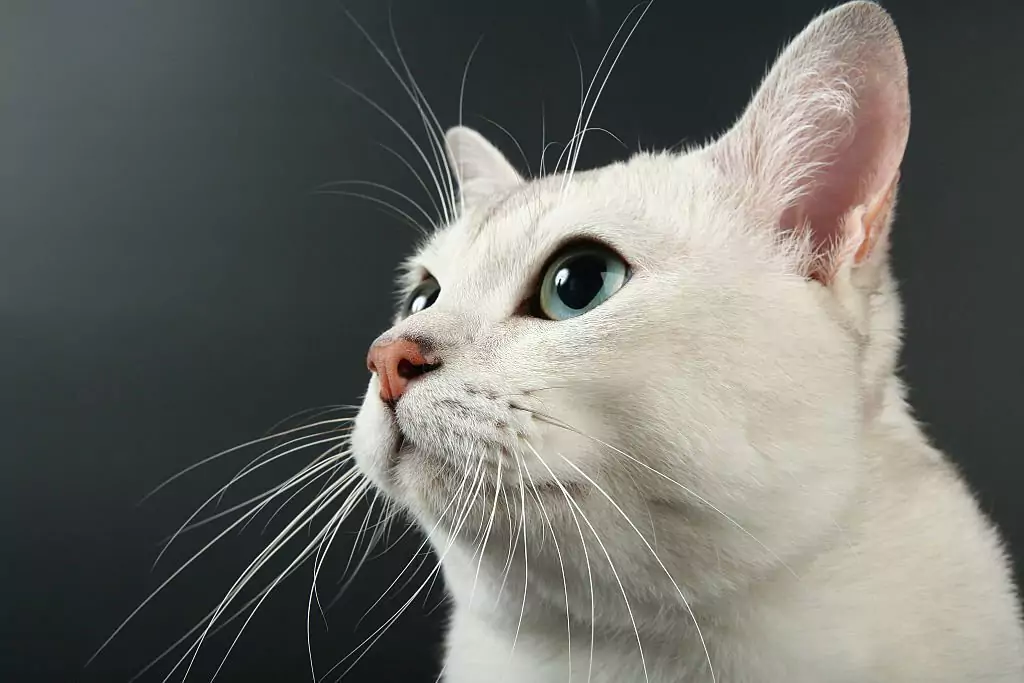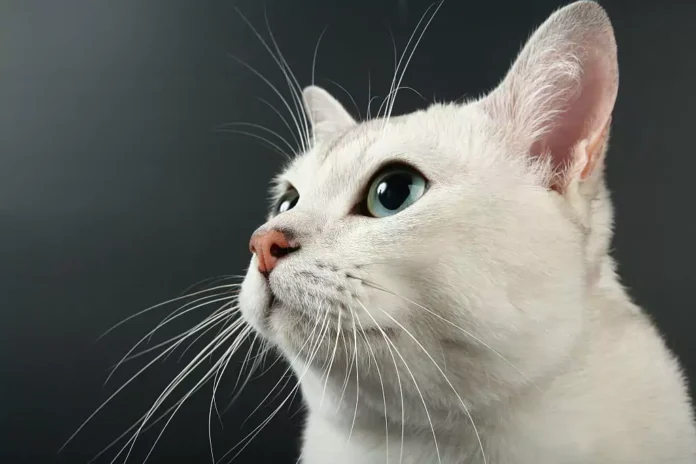Introduction to Cat Whiskers
Cat whiskers, also known as vibrissae, are long, stiff hairs that grow from a cat’s face. They are not just decorative features, but rather an essential part of a cat’s anatomy. Whiskers are highly sensitive and play a crucial role in a cat’s navigation, hunting, and communication. They are not just limited to the face, but can also be found on a cat’s legs and tail.

The Purpose of Cat Whiskers
Cat whiskers are not just for show. They are an essential tool for cats to navigate their environment. Whiskers are highly sensitive and can detect even the slightest changes in air currents. This allows cats to determine the location, size, and shape of objects in their surroundings. Whiskers also help cats to judge distances, which is important for jumping and climbing.
Whiskers are also crucial for hunting. They help cats to detect the location of prey, even in complete darkness. Whiskers can also help cats to determine the size and shape of their prey, which is important for deciding whether or not to attack. In addition, whiskers can help cats to determine the direction of the wind, which is important for stalking prey.
How Many Whiskers Does a Cat Have?
On average, cats have around 24 whiskers, 12 on each side of their face. However, the number of whiskers can vary by breed and individual cat. Some cats may have more or fewer whiskers than others. In addition to the whiskers on their face, cats also have whiskers on their legs and tail.
The Anatomy of Cat Whiskers
Cat whiskers are not just ordinary hairs. They are much thicker and stiffer than regular hairs, and they are deeply rooted in the skin. Whiskers are surrounded by a rich network of nerves and blood vessels, which makes them highly sensitive. When a cat’s whiskers are touched, the nerves send a signal to the brain, which helps the cat to interpret its surroundings.
The Different Types of Cat Whiskers
Cats have two types of whiskers: tactile and sensory. Tactile whiskers are the long, thick whiskers that are located on a cat’s face. These whiskers are used for navigation and hunting. Sensory whiskers, on the other hand, are shorter and thinner and are located on a cat’s legs and tail. These whiskers are used to detect movement and changes in the environment.
The Growth and Shedding of Cat Whiskers
Cat whiskers grow and shed just like regular hairs. However, they have a longer growth cycle and can take up to six months to grow back if they are cut or damaged. It’s important not to trim or cut a cat’s whiskers, as this can cause them to become disoriented and affect their ability to navigate and hunt.
The Importance of Cat Whiskers for Hunting
Cat whiskers are essential for hunting. They help cats to detect the location of prey, even in complete darkness. Whiskers can also help cats to determine the size and shape of their prey, which is important for deciding whether or not to attack. In addition, whiskers can help cats to determine the direction of the wind, which is important for stalking prey.
The Role of Cat Whiskers in Communication
Cat whiskers are not just used for navigation and hunting, but also for communication. Cats use their whiskers to communicate with other cats and humans. When a cat is happy and relaxed, its whiskers will be in a neutral position. When a cat is scared or angry, its whiskers will be pulled back against its face. When a cat is curious or interested, its whiskers will be forward.
How to Care for Your Cat’s Whiskers
It’s important to keep your cat’s whiskers clean and healthy. Avoid touching or playing with your cat’s whiskers, as this can cause them to become damaged or disoriented. Make sure to keep your cat’s face clean and free of debris, as this can interfere with their ability to sense their surroundings.
Fun Facts about Cat Whiskers
– Cats have whiskers on their legs and tail as well as their face.
– Whiskers can be used to determine a cat’s mood and intention.
– Whiskers have been used in art and literature for centuries.
Conclusion:
Cat whiskers are not just decorative features, but rather an essential part of a cat’s anatomy. They are highly sensitive and play a crucial role in a cat’s navigation, hunting, and communication. It’s important to appreciate and care for your cat’s whiskers, as they are an essential tool for your cat’s well-being. By understanding the importance of cat whiskers, you can better understand and care for your feline friend.


